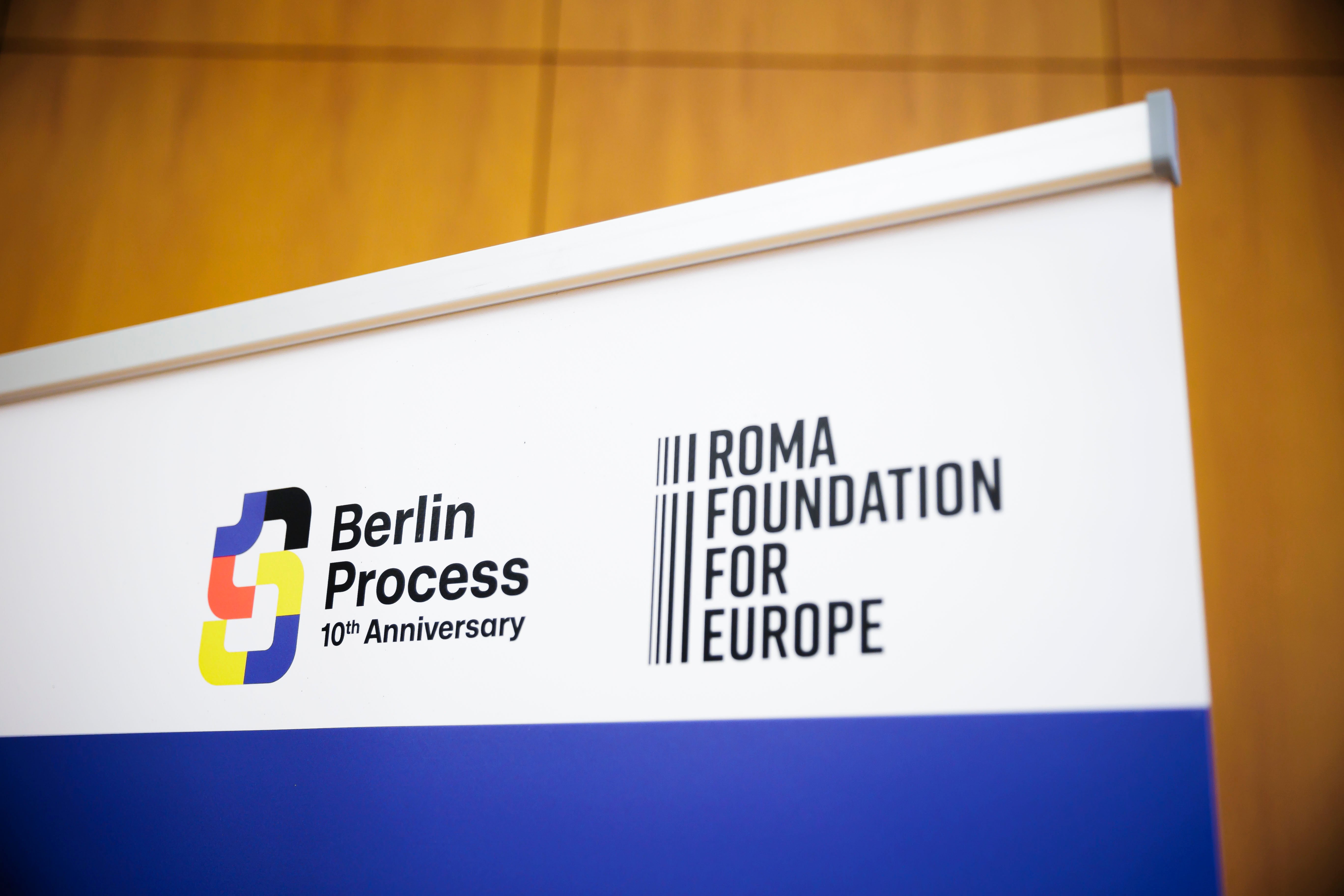As Germany hosts the 10th Berlin Process Summit aimed at bringing six Western Balkan states closer to the European Union, one of the critical issues discussed will be improving the situation of the Roma—the region's largest ethnic minority.
Roma, who often face discrimination in their daily lives and at the workplace, should be an integral part of the Western Balkans’ growth story, explained the Roma Foundation of Europe—the leading advocacy group for Roma in Europe—by presenting its Boosting the Western Balkans’ Growth report, to be discussed at the Summit.
The report, which was first submitted to the Fifth Ministerial Meeting on Roma Integration hosted by the German Federal Foreign Ministry in Berlin last month, finds that strategic investment in Roma workforce development in Western Balkans could yield annual economic gains ranging from €314 million to €1.28 billion in Serbia alone. Additionally, it highlights strong public support, with three-quarters of citizens in the Western Balkans backing government funding for Roma employment initiatives.
The Western Balkans faces significant labour market challenges due to an ageing workforce and youth emigration, with countries like Serbia projected to lose over 40% of their workforce by 2050. Roma youth, the region’s fastest-growing demographic, can fill these gaps with targeted training programs.
Zeljko Jovanovic, President of the Roma Foundation for Europe, stated: “Roma integration in the Western Balkans is a public investment that benefits all. It’s time to fully unlock their potential to contribute to the region's growth. Our report shows that investing in training programs to equip Roma youth with the skills needed by the labour market is economically smart, often recouping costs and beginning to yield returns in less than three years. Unskilled workers such as Roma youth, especially those not in education, employment or training, can quickly acquire the skills needed to fill some existing gaps.”
Three-month training programmes to equip Roma youth with the necessary skills for these deficit occupations—like welders, bus drivers, plant operators, truck drivers, receptionists, waiters and cooks—give a return of investment within three years and address both employment needs and skill shortages simultaneously.
A European Commission–funded initiative in Tivat, Montenegro, achieved a 100% success rate in employing Roma chambermaids, showcasing the effectiveness of tailored vocational training. Similarly, a model initiative in Albania focused on training Roma as solar panel installers demonstrated a return on investment in just 2.4 years, underlining the economic viability of such programs.
Last month, the Ministerial pre-meeting for the Berlin Process Summit outlined concrete, time-bound actions to ensure substantial progress by 2025 by providing skills training for Roma youth which would help address labour shortages, improve housing conditions in informal settlements, ensure equal access to healthcare, and address anti-Gypsyism through education on Roma history and culture.
It noted that progress has been made in areas of education, access to health and civil registration. For example, the completion rate of Roma schoolchildren has increased, while dropouts decreased. In addition, health coverage has been extended, and cases of undocumented Roma have been resolved.
However, challenges remain around informal employment and the lack of jobs, access to property documents and addressing anti-Gypsyism.
Anna Lührmann, Minister of State at the Federal Foreign Office of Germany, echoed the need for action. She said, “The integration of Sinti and Roma in the Western Balkans remains a priority for us. With the Berlin Process, we have placed them at the centre of our EU enlargement efforts.”

Roma Foundation for Europe
The latest

Serbia Must Amend Missing Persons Alert System to Protect Vulnerable Adults

Constitutional Review of the Šutar Law Confirms Serious Rule-of-Law Concerns

Europe’s Growth Depends on Roma Talent
Browse by category
Campaigns
Events
Facts
Press
Voices
For media inquiries:
[email protected]Sign up here so you don’t miss out on campaign updates, upcoming events and other news from the Roma Foundation for Europe and our network.
Sign up for our newsletter